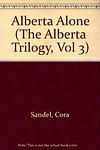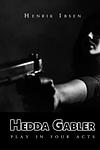The Greatest Norwegian, Danish, Brazilian Books of All Time
Click to learn how this list is calculated.
This list represents a comprehensive and trusted collection of the greatest books. Developed through a specialized algorithm, it brings together 305 'best of' book lists to form a definitive guide to the world's most acclaimed books. For those interested in how these books are chosen, additional details can be found on the rankings page.
Genres
Countries
Date Range
Reading Statistics
Click the button below to see how many of these books you've read!
Download
If you're interested in downloading this list as a CSV file for use in a spreadsheet application, you can easily do so by clicking the button below. Please note that to ensure a manageable file size and faster download, the CSV will include details for only the first 500 books.
Download-
1. Fairy Tales and Stories by Hans Christian Andersen
This collection of stories offers a mix of enchanting fairy tales and narratives, many of which have become universally recognized classics. The stories range from tales of whimsical creatures and magical realms to poignant narratives that explore themes of love, sacrifice, and the human condition. Some tales are light-hearted and humorous, while others are profound and thought-provoking, demonstrating the breadth and depth of the author's storytelling abilities.
The 212th Greatest Book of All Time -
2. Hunger by Knut Hamsun
This novel is a psychological journey through the mind of a starving young writer in 19th century Norway. Driven by pride and stubbornness, he refuses to accept help and instead chooses to endure severe hunger and the mental and physical deterioration it causes. His struggle is not only with his physical condition but also with his own mind as he battles hallucinations, mood swings, and an increasingly distorted perception of reality. The book is a profound exploration of poverty, mental illness, and the human will to survive.
The 302nd Greatest Book of All Time -
3. The Alchemist by Paulo Coelho
A young Andalusian shepherd named Santiago dreams of finding a worldly treasure and sets off on a journey across the Egyptian desert in search of it. Along the way, he encounters a series of characters who impart wisdom and help guide his spiritual journey. The novel explores themes of destiny, personal legend, and the interconnectedness of all things in the universe. The boy learns that true wealth comes not from material possessions, but from self-discovery and attaining one's "Personal Legend".
The 308th Greatest Book of All Time -
4. A Doll's House by Henrik Ibsen
This classic play focuses on the life of Nora Helmer, a woman living in a seemingly perfect marriage with her husband, Torvald. However, as the story unfolds, it becomes clear that Nora has been hiding a significant secret related to their finances. The revelation of this secret, and the subsequent fallout, challenges societal norms and expectations of the time, particularly in regards to gender roles and the institution of marriage. Nora's eventual decision to leave her husband and children in pursuit of her own independence serves as a powerful commentary on individual freedom and self-discovery.
The 324th Greatest Book of All Time -
5. Out of Africa by Isak Dinesen
The book is a memoir that recounts the author's experiences and observations living in Kenya, then British East Africa, from 1914 to 1931. It is a lyrical meditation on her life amongst the diverse cultures and wildlife of Africa. The author shares her trials and tribulations of running a coffee plantation, her deep respect for the people and land of Africa, and her intimate understanding of the subtle nuances of African culture and society.
The 326th Greatest Book of All Time -
6. Kristin Lavransdatter by Sigrid Undset
Set in 14th century Norway, "Kristin Lavransdatter" follows the life of its titular character from her childhood, through her tumultuous and passionate marriage to Erlend Nikulausson, to her life as a mother and eventual widow. The narrative explores Kristin's struggles with faith, societal expectations, and personal desires, offering a vivid portrayal of medieval Scandinavian life along the way. Despite the many hardships she faces, Kristin remains a strong and resilient woman, embodying the spirit of her time.
The 394th Greatest Book of All Time -
7. The Devil to Pay in the Backlands by Joao Guimaraes Rosa
"The Devil to Pay in the Backlands" is a complex narrative that follows the life of a Brazilian sertanejo (backlands dweller) who becomes a bandit and a feared killer. Tormented by his violent actions, he embarks on a metaphysical journey, wrestling with philosophical and religious questions, and trying to reconcile his deep belief in fate and predestination with his own free will. The book is notable for its innovative language, blending regional dialects with neologisms and classical references, which adds to its rich portrayal of the Brazilian backlands.
The 460th Greatest Book of All Time -
8. The Hour of the Star by Clarice Lispector
"The Hour of the Star" is a poignant narrative that explores the life of Macabéa, a poor, unattractive, and naive typist living in the slums of Rio de Janeiro. The story is narrated by Rodrigo S.M., a sophisticated writer who struggles with how to accurately portray Macabéa's simple existence and her tragic fate. The novel delves into themes of identity, poverty, and the human condition, presenting a stark contrast between the lives of the rich and the poor, the educated and the ignorant, and the beautiful and the plain.
The 504th Greatest Book of All Time -
9. The Posthumous Memoirs of Bras Cubas by Machado de Assis
The novel is a unique and satirical work, narrated by a dead man, Bras Cubas, who recounts his life from beyond the grave. The story is filled with ironic humor and philosophical musings as Bras Cubas explores his past, his relationships, and the societal norms of his time. The narrative breaks conventional storytelling norms, often addressing the reader directly and jumping through time without warning. Themes of love, wealth, power, and the human condition are explored, providing a critique of 19th-century Brazilian society.
The 590th Greatest Book of All Time -
10. Growth of the Soil by Knut Hamsun
"Growth of the Soil" is a novel that follows the life of a man who leaves his nomadic lifestyle to become a pioneer farmer in the Norwegian wilderness. The narrative traces his journey from solitude to building a family and a thriving farm, showcasing his deep connection with the land and the cyclical nature of life. The book also explores the tension between traditional rural life and modernity, as external forces such as industrialization and societal change begin to impact the protagonist's simple existence.
The 655th Greatest Book of All Time -
11. Dom Casmurro by Machado de Assis
The novel is a darkly comic, yet tragic exploration of love, betrayal, and jealousy, told through the unreliable narration of the protagonist, a middle-aged man who believes his wife has cheated on him with his best friend. The narrative is filled with ambiguity and uncertainty, forcing readers to question the reality of the events described. The novel is also a profound exploration of the human psyche and the destructive power of obsession.
The 766th Greatest Book of All Time -
12. Sophie's World: A Novel About the History of Philosophy by Jostein Gaarder
"Sophie's World" is a unique and intriguing novel that intertwines the narrative of a young girl named Sophie with a comprehensive history of Western philosophy. Sophie begins receiving mysterious letters from an unknown philosopher and gradually becomes engrossed in the world of philosophy. The book uses Sophie's journey to explore philosophical concepts and theories, from ancient to modern times, in an accessible and engaging way, making it an excellent introduction to the subject for readers of all ages.
The 906th Greatest Book of All Time -
13. Smilla's Sense of Snow: A Novel by Peter Høeg
The novel revolves around Smilla Jaspersen, a woman of Greenlandic-Inuit and Danish descent living in Copenhagen, who investigates the mysterious death of a small Inuit boy who falls from the roof of their apartment building. Despite the authorities ruling it as an accident, Smilla's understanding of the Arctic snow and ice, her intuition, and her relentless pursuit for truth lead her to uncover a much darker, dangerous conspiracy involving powerful corporations and government agencies.
The 1045th Greatest Book of All Time -
14. The Passion According to G.H. by Clarice Lispector
"The Passion According to G.H." is a philosophical novel that delves into the existential crisis of a wealthy Brazilian woman who, after killing a cockroach in her maid's room, experiences a profound metaphysical crisis. The narrative unfolds as a stream of consciousness that explores themes of identity, existence, and the nature of reality. The protagonist's journey forces her to confront her own humanity, the concept of nothingness, and the chaotic, interconnected nature of life. It's a profound and introspective exploration of the human condition and the meaning of existence.
The 1063rd Greatest Book of All Time -
15. House with the Blind Glass Windows by Herbjørg Wassmo
"House with the Blind Glass Windows" is a poignant tale of a young girl growing up in Norway during the 1950s. The narrative explores her struggles with family secrets, abuse, and the oppressive nature of her small, rural community. The protagonist's journey towards understanding and overcoming her traumatic past forms the crux of the story, which is set against the backdrop of post-war Europe.
The 1097th Greatest Book of All Time -
16. Pan by Knut Hamsun
The novel is a lyrical exploration of the beauty and savagery of nature, set in the wild landscapes of Northern Norway. It follows the story of a solitary hunter and former military man who lives in harmony with the wilderness. His peaceful existence is disrupted when he falls in love with a young woman, leading to a tumultuous relationship that reflects the untamed and unpredictable forces of the natural world around them. The narrative delves into themes of passion, isolation, and the human longing for connection, all while painting a vivid portrait of the changing seasons and the primal allure of the forest.
The 1125th Greatest Book of All Time -
17. The Alberta Trilogy by Cora Sandel
"The Alberta Trilogy" is a series of three novels that follow the life of Alberta Selmer, a young woman growing up in a small Norwegian town in the early 20th century. The trilogy explores Alberta's struggle with societal expectations, her pursuit of independence and her journey to becoming a painter. Set against the backdrop of a harsh Norwegian landscape, the series highlights the protagonist's struggle with poverty, her relationships, and her exploration of her identity and place in the world.
The 1348th Greatest Book of All Time -
18. Fear and Trembling by Soren Kierkegaard
"Fear and Trembling" is a philosophical work that explores the concept of faith, drawing upon the biblical story of Abraham and his willingness to sacrifice his son Isaac. The author uses this story to delve into the paradox of faith, arguing that true faith requires a willingness to make personal sacrifices that may seem absurd or irrational to others. The book challenges conventional notions of morality and ethics, suggesting that faith may sometimes require actions that go beyond the bounds of societal norms.
The 1377th Greatest Book of All Time -
19. Hedda Gabler by Henrik Ibsen
"Hedda Gabler" is a dramatic play that centers on the life of its titular character, a woman trapped in a loveless marriage with a dull, reliable husband. She is bored with her life and longs for freedom and excitement. Her desire for control and power leads her to manipulate those around her, resulting in tragic consequences. The play explores themes of societal expectations, personal freedom, and the destructive power of boredom.
The 1499th Greatest Book of All Time -
20. Rebellion In The Backlands by Euclides da Cunha
This book offers a detailed and vivid account of the War of Canudos, a significant peasant revolt that took place in the late 19th century in the Brazilian backlands. Through a blend of historical documentation and narrative, the text explores the socio-political conditions that led to the uprising, the charismatic leadership of Antônio Conselheiro, and the brutal suppression of the rebellion by the Brazilian government. The author delves into the geography, culture, and lives of the backland inhabitants, providing a deep analysis of the conflict as a reflection of the broader struggles within Brazilian society. This work is not only a historical account but also a profound commentary on the themes of civilization versus barbarism, social injustice, and the complexities of national identity.
The 1602nd Greatest Book of All Time -
21. Either Or by Soren Kierkegaard
"Either Or" is a philosophical work that explores the concept of existentialism through the lens of two contrasting life views: the aesthetic and the ethical. The aesthetic life is characterized by immediate pleasure and enjoyment, while the ethical life is defined by moral duty and responsibility. The book presents these two perspectives through the fictional letters of two characters, ultimately arguing for the superiority of the ethical life. However, it also suggests that a truly fulfilled life must find a balance between the two.
The 1650th Greatest Book of All Time -
22. Niels Lyhne by Jens Peter Jacobson
The novel is a coming-of-age story that follows the intellectual and emotional development of its eponymous protagonist, a young Danish poet who struggles with the existential dilemmas of his time. Throughout his life, he grapples with the loss of religious faith, the search for meaning in a secular world, and the pursuit of artistic truth, all while experiencing the pangs of unrequited love and personal tragedy. The protagonist's journey is one of self-discovery and disillusionment, as he seeks to reconcile his idealistic visions with the harsh realities of life, ultimately embodying the spirit of a modern, introspective individual facing the existential uncertainties of the 19th century.
The 1687th Greatest Book of All Time -
23. Macunaíma by Mario de Andrade
This book is a hallmark of Brazilian literature, blending folklore, social critique, and surrealism to narrate the adventures of its eponymous hero, a shapeshifting character of indigenous origin who embarks on a journey from the Amazon rainforest to the city of São Paulo. Throughout his quest to retrieve a magical amulet stolen by a fearsome giant, the protagonist encounters a myriad of mythical creatures, gods, and figures from Brazilian folklore, all while satirizing the cultural and social issues of early 20th-century Brazil. The narrative is celebrated for its inventive language, playful use of Brazilian vernacular, and its pivotal role in the Brazilian Modernist movement, offering a unique exploration of national identity, racial diversity, and the complex relationship between tradition and modernity.
The 1856th Greatest Book of All Time -
24. Seven Gothic Tales by Isak Dinesen
"Seven Gothic Tales" is a collection of short stories set in the 19th century, each with a unique blend of humor, horror, and romanticism. The tales, steeped in supernatural elements and psychological depth, explore themes of love, betrayal, and identity. The stories are populated by a variety of characters from different social classes and backgrounds, each facing their own moral dilemmas and existential crises. The author's vivid descriptions and atmospheric settings contribute to the gothic tone of the book.
The 1871st Greatest Book of All Time -
25. Veronika Decides to Die by Paulo Coelho
The novel centers around Veronika, a young woman from Slovenia who, disillusioned by her life and the world, decides to commit suicide. Surviving her attempt, she wakes up in a mental institution where she learns that her failed attempt has left her with only a few days to live. During her stay, she meets a variety of characters, each with their own mental issues, who help her to see her life in a new perspective. The story explores themes of madness, individuality, and the value of life, challenging societal norms and questioning the meaning of sanity.
The 1917th Greatest Book of All Time
Reading Statistics
Click the button below to see how many of these books you've read!
Download
If you're interested in downloading this list as a CSV file for use in a spreadsheet application, you can easily do so by clicking the button below. Please note that to ensure a manageable file size and faster download, the CSV will include details for only the first 500 books.
Download























